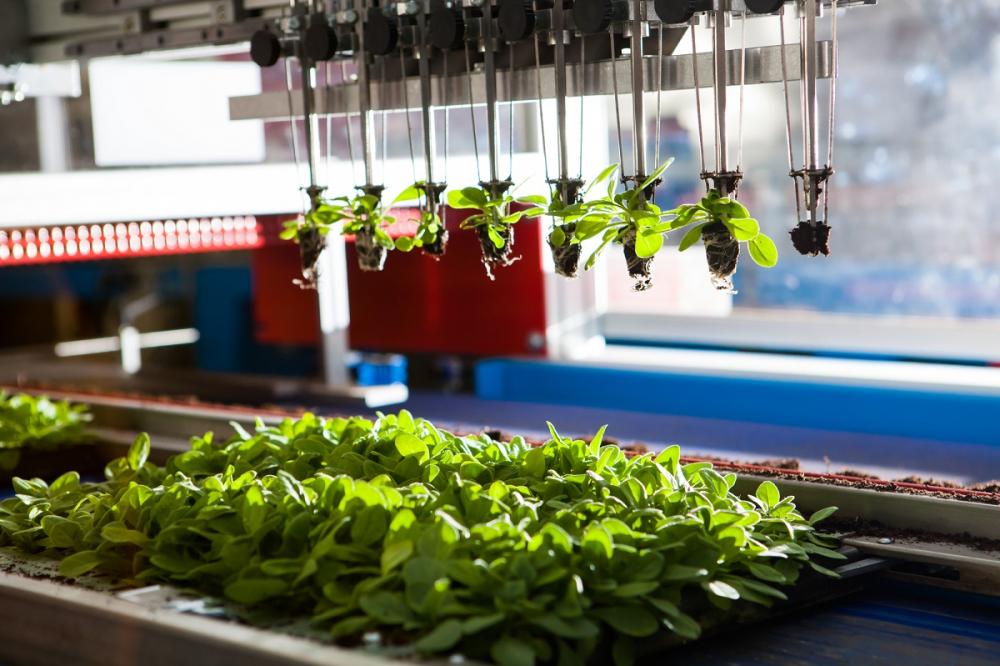IICA stresses the importance of repositioning science, technology and development to transform agriculture in the Americas

San Jose, 3 November 2020 (IICA). To work with countries to reposition science and technology, while facilitating access to the new frontier of knowledge that will place countries on the path to wholescale agricultural and rural development, in line with environmental sustainability and social inclusion concerns.
This is the aim of the Inter-American Institute for Cooperation on Agriculture (IICA), in undertaking its institutional actions, in addition to its efforts to pursue inter-cooperation and an innovation, science and technology approach, with the countries playing a leading role.
This was the thrust of the remarks by the Director General of IICA, Manuel Otero, at a meeting of the Board of Directors of FONTAGRO, a mechanism created in 1998 to promote innovation in family farming, competitiveness and food security.
Comprised of 15 member countries (Argentina, Bolivia, Chile, Colombia, Costa Rica, Dominican Republic, Ecuador, Honduras, Nicaragua, Panama, Paraguay, Peru, Spain, Uruguay and Venezuela), FONTAGRO is sponsored by the Inter-American Development Bank and IICA.
Also attending the meeting were Celso Moretti, President of the Brazilian Agricultural Research Corporation (EMBRAPA); Julio Berdegué, FAO Regional Representative for Latin America and the Caribbean; and Jesús Quintana, Managing Director for the Americas for the Alliance of Bioversity International-CIAT.
“Our main concern is to guarantee the institutional conditions that will enable the region to fully exploit the transformational potential of the new science and technology scenarios”, said Otero, recalling the express ministerial mandate for IICA to serve as the innovation platform for agriculture in the hemisphere.
In this regard, he highlighted the importance of institutional innovation and of responding to the demand for new approaches, following on the heels of successful models that were predominant in the region in recent decades, which had managed to fuel transformation and to carve out a key role for the Americas in global food security.
IICA has demonstrated its role as a bridge to support the transformation of the agricultural sector in the Americas, positioning science and technology as key issues in public and private agendas.
“Another aspect is that there are areas such as biotechnology and digital agriculture that require differentiated strategies and with this in mind, we are working to establish a mechanism to facilitate access to these technologies by countries with minimal resources”, added Otero, who mentioned, by way of example, IICA’s partnership with PAD—the organization founded by Nobel Prize winner, Michael Kremer that provides support to family farmers via mobile phones—and its interaction with the Inter-American Development Bank (IDB) and Microsoft, working for a pro-connectivity agenda.
He also called the bioeconomy a “promising path”, as it offers a means of extending the scope of agriculture and rurality.
He stated that the current challenges facing agriculture in the hemisphere, which have been further accentuated by the effects of the pandemic, have created the need for greater partnerships and institutional contributions that will create the platform to provide the necessary support for agriculture in the Americas.
“We are in an era of rapid change that demands equally rapid responses. Thus, our main concern is to create the institutional conditions that will enable Latin America and the Caribbean to harness the full transformational potential of the new scientific and technological scenarios”, he said.
More information:
Institutional Communication Division, IICA.
comunicacion.institucional@iica.int